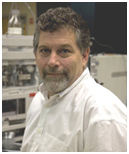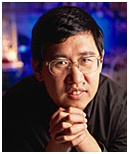Dr. Aaron Williams.
 Dr. Aaron Williams is a practicing radiation oncologist. His interest in cancer began as a pharmacy student participating in a biomedical research at Florida A&M University. There, he focused on compounds that were potential anti-cancer agents. After receiving his Doctor of Pharmacy degree and practicing pharmacy for 2 years, he attended medical school at the University of South Florida. He completed his residency in radiation oncology at Wayne State University/Detroit Medical Center, a National Cancer Institute designated cancer center. He is a Diplomat of the American Board of Physician Specialties. He has also received a Master of Business Administration from the University of Tennessee.
Dr. Aaron Williams is a practicing radiation oncologist. His interest in cancer began as a pharmacy student participating in a biomedical research at Florida A&M University. There, he focused on compounds that were potential anti-cancer agents. After receiving his Doctor of Pharmacy degree and practicing pharmacy for 2 years, he attended medical school at the University of South Florida. He completed his residency in radiation oncology at Wayne State University/Detroit Medical Center, a National Cancer Institute designated cancer center. He is a Diplomat of the American Board of Physician Specialties. He has also received a Master of Business Administration from the University of Tennessee.
Dr. Williams is a past adjunct clinical professor at the Ohio University College of Osteopathic Medicine. Dr. Williams also serves as an international consultant to countries with limited access to radiation therapy. He has authored several publications in peer-reviewed journals. He has presented at many national and international medical conferences.
Ron Orlando, Ph.D.
 Ron has over twenty-five years experience with the analysis of biological molecules with mass spectrometry. He specializes in the analysis of proteins and their post-translational modifications, particularly glycosylation. Work in the Orlando lab is currently focused on the development of mass spectrometry based techniques for: (1) the high throughput analysis of glycoproteins and carbohydrates from complex biological samples, (2) the structural characterization of complex biologically active glycoproteins and protein carbohydrate interactions, (3) analyzing protein expression in the Chagas’ disease causing parasite Trypanosoma cruzi. Ron has authored or co-authored over 100 publications in peer reviewed journals; routinely serves on National Institutes of Health review panels; presented over 100 invited lectures on protein analysis with mass spectrometry. Dr. Orlando is the Editor-in-chief at the Journal of Biomolecular Techniques; and Founder and CEO at GlycoScientific, LLC.
Ron has over twenty-five years experience with the analysis of biological molecules with mass spectrometry. He specializes in the analysis of proteins and their post-translational modifications, particularly glycosylation. Work in the Orlando lab is currently focused on the development of mass spectrometry based techniques for: (1) the high throughput analysis of glycoproteins and carbohydrates from complex biological samples, (2) the structural characterization of complex biologically active glycoproteins and protein carbohydrate interactions, (3) analyzing protein expression in the Chagas’ disease causing parasite Trypanosoma cruzi. Ron has authored or co-authored over 100 publications in peer reviewed journals; routinely serves on National Institutes of Health review panels; presented over 100 invited lectures on protein analysis with mass spectrometry. Dr. Orlando is the Editor-in-chief at the Journal of Biomolecular Techniques; and Founder and CEO at GlycoScientific, LLC.
Carmen Eilertson, Ph.D.
 Dr. Eilertson has years of biotechnology experience. She has served as Director of Research for Cell Separation Technology, LLC, based in Tucker, Georgia, which developed a novel method for stem cell selection and growth. Shortly thereafter, Dr. Eilertson accepted a faculty position at Georgia State University and continued collaboration with local biotech companies. Dr. Eilertson served as Director of Operations and Consultant to Zygogen, LLC, which occupied labs in the Georgia Research Alliance’s Advanced Biotechnology Core Facility, located on GSU’s campus. She developed a transgenic Zebrafish screening platform for use in a variety of disciplines such as toxicity and cardiovascular drug testing. Furthermore, her role as Senior Lecturer in the biology department has allowed me to provide research training to students through her collaborations in biotech. Dr. Eilertson has received SBIR grants and been awarded funding opportunities from other biotechnology sponsors.
Dr. Eilertson has years of biotechnology experience. She has served as Director of Research for Cell Separation Technology, LLC, based in Tucker, Georgia, which developed a novel method for stem cell selection and growth. Shortly thereafter, Dr. Eilertson accepted a faculty position at Georgia State University and continued collaboration with local biotech companies. Dr. Eilertson served as Director of Operations and Consultant to Zygogen, LLC, which occupied labs in the Georgia Research Alliance’s Advanced Biotechnology Core Facility, located on GSU’s campus. She developed a transgenic Zebrafish screening platform for use in a variety of disciplines such as toxicity and cardiovascular drug testing. Furthermore, her role as Senior Lecturer in the biology department has allowed me to provide research training to students through her collaborations in biotech. Dr. Eilertson has received SBIR grants and been awarded funding opportunities from other biotechnology sponsors.
Richard D. Cummings, Ph.D
 Is the William Patterson Timmie Professor and Chairman of the Department of Biochemistry at Emory University School of Medicine in Atlanta, Georgia. He is a co-founder, among many other well-known scientists, of the field of glycomics and glycobiology. Before moving to Emory University, Cummings was the Ed Miller Endowed Chair in Molecular Biology, the George Lynn Cross Professor in Biochemistry, and Professor of Biochemistry and Molecular Biology at the University of Oklahoma Health Sciences Center, College of Medicine, in Oklahoma City, Oklahoma. At the University of Oklahoma Health Sciences Center, Cummings was a founder of the Oklahoma Center for Medical Glycobiology (founded in 1999). At Emory University Cummings was a co-founder and is currently co-Director of the Glycomics Center at Emory University School of Medicine (founded in 2007). Cummings is the co-founder, along with Rodger P. McEver, MD, and Richard Alvarez, MBA, of Selexys Pharmaceutical Corporation, where he initially served as President and Chief Scientific Officer. Selexys Pharmaceutical Corporation is based in Oklahoma City, Oklahoma. Cummings graduated from Isabella High School in Chilton County, AL in 1970, and then received his B.S. in Biology from the University of Montevallo in 1974. He received his Ph.D. in Biochemistry from The Johns Hopkins University in 1980. He was a Postdoctoral Fellow in the Division of Hematology/Oncology at Washington University in St. Louis from 1980 through 1983.
Is the William Patterson Timmie Professor and Chairman of the Department of Biochemistry at Emory University School of Medicine in Atlanta, Georgia. He is a co-founder, among many other well-known scientists, of the field of glycomics and glycobiology. Before moving to Emory University, Cummings was the Ed Miller Endowed Chair in Molecular Biology, the George Lynn Cross Professor in Biochemistry, and Professor of Biochemistry and Molecular Biology at the University of Oklahoma Health Sciences Center, College of Medicine, in Oklahoma City, Oklahoma. At the University of Oklahoma Health Sciences Center, Cummings was a founder of the Oklahoma Center for Medical Glycobiology (founded in 1999). At Emory University Cummings was a co-founder and is currently co-Director of the Glycomics Center at Emory University School of Medicine (founded in 2007). Cummings is the co-founder, along with Rodger P. McEver, MD, and Richard Alvarez, MBA, of Selexys Pharmaceutical Corporation, where he initially served as President and Chief Scientific Officer. Selexys Pharmaceutical Corporation is based in Oklahoma City, Oklahoma. Cummings graduated from Isabella High School in Chilton County, AL in 1970, and then received his B.S. in Biology from the University of Montevallo in 1974. He received his Ph.D. in Biochemistry from The Johns Hopkins University in 1980. He was a Postdoctoral Fellow in the Division of Hematology/Oncology at Washington University in St. Louis from 1980 through 1983.
Binghe Wang, Ph.D
 In 1978 when China re-opened its universities, he was admitted into Beijing Medical College (now Beijing University Health Sciences Center). After receiving his B.S. degree in Medicinal Chemistry, he started his graduate career first at the University of British Columbia, Department of Chemistry. Still longing for a career in medicinal chemistry, he later transferred to the University of Kansas, which has one of the best medicinal chemistry programs in the world. While at the University of Kansas working under the guidance of the late Professor Matt Mertes and Professor Kristin Bowman-James, he studied thymidylate synthase, a target enzyme for cancer chemotherapy, and the design and synthesis of molecular catalysts. After receiving his Ph.D. degree, he worked with Professors Victor Hruby at the University of Arizona and Ronald T. Borchardt at the University of Kansas before embarking on his own independent academic career in 1994 at the University of Oklahoma College of Pharmacy as an assistant professor of medicinal chemistry. In 1996, he moved to North Carolina State University as an assistant professor of chemistry. In 2003, he assumed the position of Professor and Georgia Research Alliance Eminent Scholar in Drug Discovery at Georgia State University. He is the Editor-in-Chief of Medicinal Research Reviews and book series editor of “A Wiley Series in Drug Discovery and Development.” In addition, he has edited two books together with his colleagues: “Drug Delivery: Principles and Applications” published by John Wiley and Sons and “Pharmaceutical Profiling in Drug Discovery for Lead Selection” published by the American Association of Pharmaceutical Scientists.
In 1978 when China re-opened its universities, he was admitted into Beijing Medical College (now Beijing University Health Sciences Center). After receiving his B.S. degree in Medicinal Chemistry, he started his graduate career first at the University of British Columbia, Department of Chemistry. Still longing for a career in medicinal chemistry, he later transferred to the University of Kansas, which has one of the best medicinal chemistry programs in the world. While at the University of Kansas working under the guidance of the late Professor Matt Mertes and Professor Kristin Bowman-James, he studied thymidylate synthase, a target enzyme for cancer chemotherapy, and the design and synthesis of molecular catalysts. After receiving his Ph.D. degree, he worked with Professors Victor Hruby at the University of Arizona and Ronald T. Borchardt at the University of Kansas before embarking on his own independent academic career in 1994 at the University of Oklahoma College of Pharmacy as an assistant professor of medicinal chemistry. In 1996, he moved to North Carolina State University as an assistant professor of chemistry. In 2003, he assumed the position of Professor and Georgia Research Alliance Eminent Scholar in Drug Discovery at Georgia State University. He is the Editor-in-Chief of Medicinal Research Reviews and book series editor of “A Wiley Series in Drug Discovery and Development.” In addition, he has edited two books together with his colleagues: “Drug Delivery: Principles and Applications” published by John Wiley and Sons and “Pharmaceutical Profiling in Drug Discovery for Lead Selection” published by the American Association of Pharmaceutical Scientists.
Jeffrey Lennox, M.D.
 Dr. Lennox is professor of medicine, Emory University School of Medicine; chief of infectious disease, Grady Memorial Hospital; vice-chair of medicine for Grady affairs; and medical director of the infectious disease program at the Ponce de Leon Center. Dr. Lennox became a faculty member in the division of infectious diseases at the Emory University School of Medicine in1994. He is the medical director of the infectious disease program at the Ponce de Leon Center, which provides patients with a wide spectrum of services in one location, including a primary care clinic, women’s clinic, family clinic, dental clinic, mental health clinic, clinical research area, infusion area, pharmacy, subspecialty clinics, including ophthalmology and dermatology, HIV education and community referral. Through Dr. Lennox’s leadership, the infectious disease program at the Ponce Center has gained national recognition as one of the premier sites for HIV care in the United States.
Dr. Lennox is professor of medicine, Emory University School of Medicine; chief of infectious disease, Grady Memorial Hospital; vice-chair of medicine for Grady affairs; and medical director of the infectious disease program at the Ponce de Leon Center. Dr. Lennox became a faculty member in the division of infectious diseases at the Emory University School of Medicine in1994. He is the medical director of the infectious disease program at the Ponce de Leon Center, which provides patients with a wide spectrum of services in one location, including a primary care clinic, women’s clinic, family clinic, dental clinic, mental health clinic, clinical research area, infusion area, pharmacy, subspecialty clinics, including ophthalmology and dermatology, HIV education and community referral. Through Dr. Lennox’s leadership, the infectious disease program at the Ponce Center has gained national recognition as one of the premier sites for HIV care in the United States.
